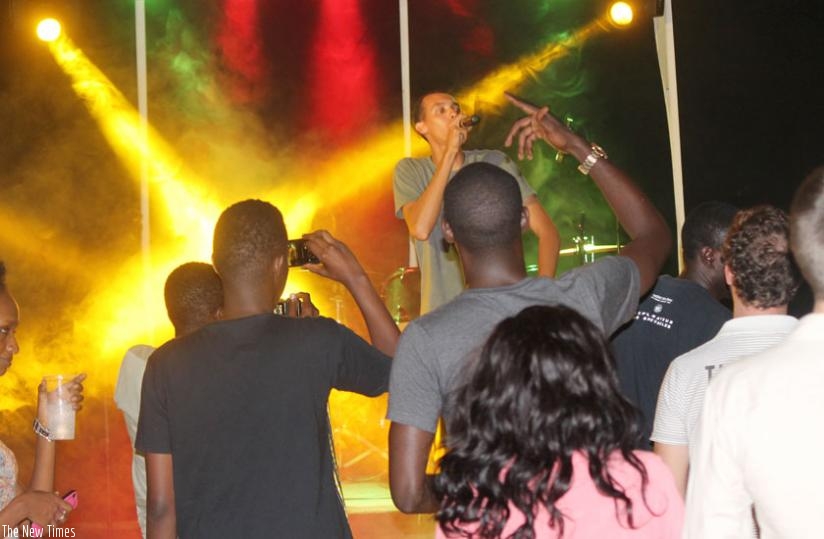French-Rwandan hip-hop singer Gael Faye was one of the artistes that graced the fourth edition of the Isaano Arts Festival held in Kigali from February 12 to 21.


French-Rwandan hip-hop singer Gael Faye was one of the artistes that graced the fourth edition of the Isaano Arts Festival held in Kigali from February 12 to 21.
Known for songs like Metis, Je Pars and Ma Femme, off his first album Pili Pili, the singer did not have just musical performances on his mind at the festival.
Rather, his main exhibit was the airing of a documentary, Upstaright Men that the singer did for the 20th commemoration of the 1994 Genocide against the Tutsi, and that he premiered at a big event in Paris last year.
Also featured on the same night was the work of South African visual artiste Bruce Clarke, author of the on-going project, "the Garden of Memory” a memorial sculpture for the victims of the Genocide.
"The aim was having these up straight men in different countries –saying we’re now up with dignity though we were once down because of the Genocide. The organisation of the festival invited this project because it’s still important to honour the victims and then to celebrate the lives of the living ones.”
Faye explained after the event, staged at the Champion Hotel in Remera, "I don’t feel like I’m a real musician. I feel I’m more of an author or writer. If I do music it’s because I write. The writing is what leads me to the music and not the contrary.
In the end I do music because it’s my passion, but I don’t feel like I’m a real musician even when I’ve got the skills.”
And Faye writes across the board; for himself, for other musicians; he writes poetry, novels and movie scripts, and also has plans to venture into writing for theater and also children’s stories. He has two children of his own.
Though half-French half-Rwandan, he was born in Bujumbura, Burundi, and indeed his music and writings are a reflection of this diversity. Most of his songs explore the subject of personal and collective identity, humanity and love.
Faye is currently putting together his first novel, slated for release later this year. It’s a fictional story based in Burundi 20 years ago. It follows a group of children who live in a dead-end street in Bujumbura, and the dead end is the symbol of their naivety and also the symbol of their childhood and the war that erupted in the country in 1994 after the assassination of the then president Melchior Ndadaye in 1993.
"We see some of the children wanting to stay as children, and others wanting to be part of this war, then eventually they start to have fights among them like the adults elsewhere,” explained the musician.
"I want to tell stories about our region because in Burundi and even in Rwanda, we don’t have a lot of people who are telling our own stories. It’s always people from abroad.”
He is currently working on completing his second music album. He writes from Rwanda but records in France. "I work with some French musicians, but my inspiration is here. I need like 12-13 hours to write a single song. So it’s a lot of hard work, just like waking up at 5:00 am to go to office then leave at 7:00 pm. I think it’s like any other job really.”
Asked if he had anything to say to his fans, he said, "I don’t have fans. I don’t like that tag because in French fan means fanatic, and a fanatic is someone who does not think with their brain. It’s usually about emotions, and I don’t think people who like my music are like that. I think people like my music because it talks to them in a special way, not because they like me. When I write my music it’s more a conversation between two people, and if I can say something that people will listen to, what more can I ask for?”
editorial@newtimes.co.rw


